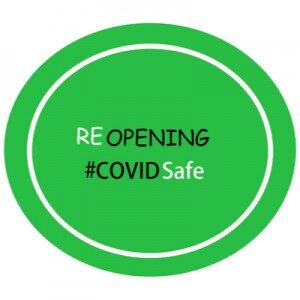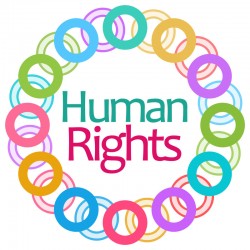If Your Employee Requests a Reasonable Accommodation for Disability, Pregnancy, Childbirth or Related Medical Condition, Religion, or Domestic Violence Victim Status, Will You Know What to Do?
Imagine an employee tells you she is undergoing chemotherapy for pancreatic cancer and will need time off for treatment, and to heal and rest, intermittently, over the next 6 months. What are your legal obligations as a New York City employer with respect to her request for an accommodation for her disability and what steps must you take to address that request?
Background
By way of background, under federal law (Americans with Disabilities Act Amendments Act), New York State law (New York State Human Rights Law), and New York City Human Rights law, covered employers must engage in a good faith, interactive process to determine a reasonable accommodation for a job applicant’s or employee’s disability.
New York City’s Human Rights Law (NYCHRL) goes further than disability with respect to the matters that covered employers must reasonably accommodate for job applicants and employees. NYCHRL requires New York City employers with four or more employees to reasonably accommodate job applicants and employees because of pregnancy, childbirth and related medical conditions, religious observance, status as a victim of domestic violence, sexual violence or stalking, and, of course, disability, so that the employees can perform the essential functions of the job unless doing so would create an undue hardship for the employer.
NYCHRL also prohibits associational disparate treatment—meaning, an employer may not discriminate against an employee because of that employee’s relationship to or association with a person with an actual or perceived disability (i.e., firing an employee who volunteers helping people with AIDS out of fear that the employee will contract the disease, is unlawful).
What the Cooperative Dialogue Entails/What Has Changed[1]
Effective October 16, 2018, the New York City Human Rights Law will now require covered employers to engage in or seek to engage in a “cooperative dialogue” with individuals who may be entitled to such accommodation, and an individualized assessment, within a reasonable time, in order to identify what reasonable accommodations are available to assist that person. In other words, there will now be a separate legal cause of action against an employer for “refusing or otherwise failing to engage in a cooperative dialogue” within a reasonable time with a person who has requested an accommodation or who the covered entity has notice may require such an accommodation.” Thus, the cooperative dialogue requirement will now be the first step in providing a reasonable accommodation.
According to recently issued guidance by the New York City Commission on Human Rights (NYCCHR), the new cooperative dialogue law requires that once a covered entity (employers, public accommodations, and housing providers) learns, either directly or indirectly, of an individual’s need for an accommodation due to his or her disability, the entity must:
1) initiate a dialogue with the individual that addresses the individual’s needs and considers possible accommodations without creating undue hardship on the entity (in other words, it need not be the employee who initially makes a request);
2) notify the individual in writing of the determination to grant or deny the request for a reasonable accommodation (in the case of employers and housing providers).
The cooperative dialogue amendment expands upon the reasonable accommodation requirement to “engage in a good faith interactive process” by explicitly requiring an employer to engage in a dialogue with the employee (regardless of whether the employee initiates it) regarding the employee’s accommodation needs, potential accommodations (including any alternative accommodations), and any difficulties the accommodations may pose for the employer. At the conclusion of the dialogue, the employer must provide the employee with a written final determination identifying any accommodation that was granted or denied.
Note that employees are not required to disclose their disability in a cooperative dialogue, or even before an offer of employment. According to the NYCCHR guidance, it is unlawful for an employer to terminate an employee for failing to disclose his or her disability status or need for a reasonable accommodation.
Initiating cooperative dialogue
The employer must engage in a cooperative dialogue within a reasonable time with a person who has requested an accommodation, or who the entity has notice (i.e. should have known) may require an accommodation related to a disability. For example, if employer has knowledge that an employee’s performance at work is diminished or that his or her behavior at work could lead to an adverse employment action and has reasonable basis to believe that the issue is related to a disability, the employer must initiate a cooperative dialogue with the employee. The employer should not ask the employee if the employee has a disability, but may ask if there is anything going on that the employer can help with, inform the employee that various types of support are available, and remind them of the workplace policies and procedures for requesting a reasonable accommodation.
Engaging in cooperative dialogue
The dialogue may be in person, in writing, by phone, or via electronic means. It should address potential accommodations that suit the individual’s needs, including alternatives to a requested accommodation, and the difficulties that such potential accommodations may pose for the covered entity. This process involves the employer communicating in good faith with the individual requesting an accommodation in a transparent and timely manner, and the individual responding in good faith (e.g., individual cannot simply reject an offered accommodation that would be sufficient to meet his or her needs because it is not the preferred accommodation). If the employer offers accommodation and the individual reasonably determines that it is not sufficient to meet his or her needs, then the employer has not met its obligation to engage in a cooperative dialogue and must continue to engage in a conversation with the individual to determine if there are other alternatives to meet the individual’s needs.
Upon reaching a final decision through the cooperative dialogue, the entity must provide the person requesting the accommodation with a written final determination identifying any accommodation granted or denied. This concludes the cooperative dialogue.
If an employer determines that no reasonable accommodation would enable the employee to meet the essential functions of a job or enjoy the right(s) in question, that determination may be made only after engaging in and completing the cooperative dialogue process.
Continuing Obligation
Each time an individual makes a new request for accommodation, the employer must engage in a cooperative dialogue with the individual. This may be cumbersome for the employer where, for instance, an employee has requested a leave of absence, and the leave continues to get extended from the original period of time requested.
Consequences of non-compliance
Failing to engage in a cooperative dialogue with an individual requesting a reasonable accommodation—which includes failing to provide written documentation of the final determination– is now an independent violation of the NYCHRL.
Those aggrieved may bring a lawsuit in court and recover all remedies available under New York City Human Rights Law. If they bring a proceeding before the New York City Commission on Human Rights, employers found to have violated the cooperative dialogue requirement may be subject to damages for back pay, emotional distress damages, attorneys’ fees, and/or civil penalties up to $125,000 per violation, and up to $250,000 for a violation that is willful, wanton, or malicious, as well as directed to conduct employee training and update employee policies with particular language directed by the agency.
Recommendations
In view of this new law, covered New York City employers should consider:
- Updating employee handbook policies and procedures to reflect the new reasonable accommodation and cooperative dialogue requirements, including the process to request a reasonable accommodation and document whether an employer has granted or denied a reasonable accommodation request.
- Training supervisors on lawful hiring–particularly with respect to job candidates who may need reasonable accommodations for disabilities, religious practices/beliefs, pregnancy, childbirth and related medical conditions, victims of domestic violence– and on recognizing and properly and lawfully responding to requests for reasonable accommodations.
- Providing information to employees explaining their rights to reasonable accommodations for: (1) disabilities; (2) religious needs; (3) pregnancy, childbirth, and related medical conditions (written notice or posting required); and (4) victims of domestic violence, sex offenses, or stalking, and the cooperative dialogue process.
- Creating and providing a reasonable accommodation request form for employees, and document employer determinations on granting or denying reasonable accommodation requests. Ensure that any medical information is kept separate from personnel files, and in a locked cabinet, with limited access to those with a “need-to-know.”
- Reviewing NYC Commission on Human Rights guidance for employers and places of public accommodation on reasonable accommodation of disabilities.
Our employment law department conducts training on lawful hiring and handling reasonable accommodations and updates employee policies. Please contact Lisa Brauner, Head of Perlman & Perlman LLP’s Employment Law Practice, at: lisa@perlmanandperlman.com or 212-889-0575 to schedule a training (and update the employee handbook) for your organization.
[1] Places of public accommodation (such as hospitals, medical or dental offices, hotels, theaters, and schools) are required to engage with customers in a cooperative dialogue to ensure they are providing reasonable accommodations. Although the type of public accommodation and the nature of its interaction with a customer (e.g. shorter vs. longer-term relationship) may influence what is considered a “reasonable” accommodation, all places of public accommodations must consider certain types of accommodations regardless of an individual customer’s need. For example, all places of public accommodations should evaluate whether it will be an undue hardship to install a ramp at the entrance of their facility.
-
Perlman & Perlmanhttps://www.staging-perlmanandperlman.com/author/nancyisrael/
-
Perlman & Perlmanhttps://www.staging-perlmanandperlman.com/author/nancyisrael/
-
Perlman & Perlmanhttps://www.staging-perlmanandperlman.com/author/nancyisrael/
-
Perlman & Perlmanhttps://www.staging-perlmanandperlman.com/author/nancyisrael/











